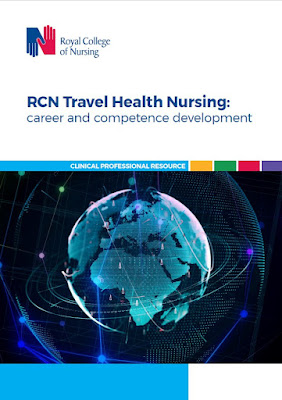I have carried over much of the information I wrote in a blog in December 2019 as it remains relevant, but added in some updated news items as well that have been published more recently.
Here are the topics covered:- Explanation of the PHEIC for Polio
- Detail about the temporary recommendations and what your travellers need to know
- Details about the ICVP and how to obtain them
- Details about who to charge for a polio containing vaccine
- NEW - Polio virus found in London
1. Explanation of the PHEIC for Polio
A Public Health Emergency of International Concern (PHEIC) is a formal declaration made by the World Health Organization and one was called regarding polio in May 2014. As a result, the Emergency Committee (EC) meets every three months under the International Health Regulations (2005) (IHR) to review the situation regarding the international spread of polio virus. The intent is to stop polio being exported from these countries. Polio remains a PHEIC - the EC meets every 3 months. At the time of writing, the 35th meeting had been held. Updates are then subsequently put onto the NaTHNaC (TravelHealthPro) and TRAVAX websites to inform you about this and any other polio information such as cases wild polio virus (WPV) and of circulating vaccine derived polio virus (cVDPV) occurring in other countries.
Polio will eventually be eradicated, but for now it's about controlling numbers of cases WPV and also cVDPV of which there are 3 strains. There's a map which illustrates the current day situation. This data is on the Polio Global Eradication Initiative site which has some excellent information explaining the situation, so maybe take the opportunity to look around.
2. Detail about the temporary recommendations and what your travellers need to know
The countries involved and the resultant guidance often change from one EC meeting to another and you will need to check the information on the country specific pages of the website you use to assess risk - TravelHealthPro or TRAVAX,
So what do you need to do as a travel health advisor seeing a traveller going to one of these countries and what is the guidance? The risk groups are divided into 3 categories
- If your traveller is going to one of the destinations in Group 1 for LONGER THAN 4 WEEKS they should be asked to provide evidence of having received polio vaccine IN THE LAST 12 MONTHS when they leave the country
- This evidence has to be produced on an International Certificate of Vaccination or Prophylaxis (ICVP).
- If they can't provide this, they may be given oral polio vaccine immediately on exit and provided with a certificate - all free of charge.
- For most travellers this is FINE, but because the vaccine given will be oral polio vaccine (OPV) which is a live vaccine, we wouldn't want certain groups to have it e.g. a pregnant woman, someone who is immunosuppressed (see more detail below).
- Therefore certain groups are advised to be vaccinated prior to departure.
3. Details about the ICVP and how to obtain them - this is guidance if working in England
- Guidance on how to complete the certificate is on NaTHNaC here
- You are able to charge for just the certificate in a GP setting - the certificate booklet costs just over £1 per unit so could add on a modest amount to allow for the work involved
- NaTHNaC does not advise writing yellow fever and poliomyelitis on the same certificate - one ICVP per disease should be given - see details on the guidance page
UKHSA Polio: guidance, data and analysis
WHO factsheet on polio



